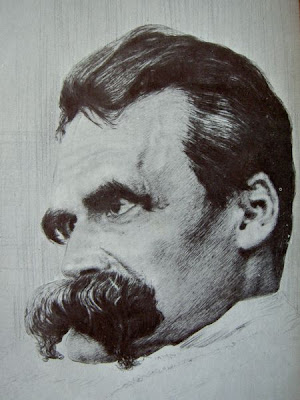Nietzsche vs. Maximilian Kolbe on the Uber-man
All of you philosophy college majors will remember how Friedrich Nietzsche described the Übermensch or Superman as the goal for humanity in his 1883 book Thus Spoke Zarathustra. For who didn’t study philosophy, just remember Stanley Kubrick’s film 2001: Space Odyssey where it begins with apes, moves to humans, and then climaxes in the “super star baby” floating in space.
2001: Space Odyssey is sort of a symbolic account of Nietzsche’s philosophy in that it traces the progress of man moving toward the ideal new humanity.
Nietzsche sought to inshrine aristocratic values by positing the uber-man or superman as our goal. In the first chapter of his book Ecce Homo, Nietzsche explains, “The word ‘uber-man’ denotes a type of supreme achievement, as opposed to ‘modern’ men, ‘good’ men, Christians, and other nihilists.”
Now compare this to Saint Maximilian Maria Kolbe who transforms the meaning of uber-man or superman in a Catholic way:
“He who advances according to the will of God is really a superman, a supernatural being who rises infinitely higher than all geniuses. Such a soul acts according to infinite goodness and power.” – St Maximilian Maria Kolbe, Aim Higher 4.24.
For Nietzsche, the superman is not the Christian. For Kolbe, the superman is simply the Christian saint who becomes like God – one who perfectly conformed to Christ through love.
Dive Deeper

GET CONFIDENT IN YOUR FAITH
Explore the fascinating world of Catholic teachings with Dr. Marshall. Together you’ll unpack the brilliant answers the Church gives to tough questions about the Faith. The best part: you go at your own pace. Start this exciting journey today.

